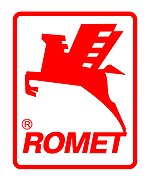호모 사피엔스 종의 단백질 코드 유전자
DNA 복구 및 재조합 단백질 RAD54B는 RAD54B [5] [6] [7] 단백질 이다.
이 유전자에 의해 암호화된 단백질은 DEAD 유사 헬리케이스 슈퍼패밀리에 속합니다. 그것은 사카로미세스 세레비시아 이 단백질은 이중 가닥 DNA에 결합하고 DNA가 있는 상태에서 ATPase 활성을 나타낸다. 이 유전자는 고환과 비장에서 많이 발현되어 감수분열과 유사분열 재조합에서 적극적인 역할을 한다. 이 유전자의 동형 접합 돌연변이는 [7]
상호 작용 RAD54B는 RAD51 과 [6] 것 으로 나타났습니다.
암 RAD54B 유전자는 대장암 (약 3.3%), 유방암 (약 3.4 %), 폐암(약 2.6%)[8] 돌연변이되거나 삭제된다.북미에서는 이 세 가지 암만 해도 매년 RAD54B 결함 암으로 진단되는 약 20,500명을 차지한다. 전임상연구에서 RAD54B 에 결함이 있는 대장암세포 는 DNA복구단백질 PARP1의 [8] PARP1의 억제제 는 암세포에서 RAD54B 경로의 상실을 보상할 수 있는 대체 DNA 복구 반응을 방해할 수 있다.따라서 PARP1 억제제로 처리된 RAD54B 결핍 암세포는 RAD54 결함이 없는 비암세포보다 자연 발생 DNA 손상에 의한 사망에 더 취약하다(기사 '합성 치사성 ' 참조).
레퍼런스 ^ a b c GRCh38: 앙상블 릴리즈 89: ENSG00000197275 - 앙상블 , 2017년 5월^ a b c GRCm38: 앙상블 릴리즈 89: ENSMUSG00007873 - 앙상블 , 2017년 5월^ "Human PubMed Reference:" . National Center for Biotechnology Information, U.S. National Library of Medicine .^ "Mouse PubMed Reference:" . National Center for Biotechnology Information, U.S. National Library of Medicine .^ Hiramoto T, Nakanishi T, Sumiyoshi T, Fukuda T, Matsuura S, Tauchi H, Komatsu K, Shibasaki Y, Inui H, Watatani M, Yasutomi M, Sumii K, Kajiyama G, Kamada N, Miyagawa K, Kamiya K (Jun 1999). "Mutations of a novel human RAD54 homologue, RAD54B, in primary cancer" . Oncogene . 18 (22): 3422–6. doi :10.1038/sj.onc.1202691 PMID 10362364 . ^ a b Tanaka K, Hiramoto T, Fukuda T, Miyagawa K (Sep 2000). "A novel human rad54 homologue, Rad54B, associates with Rad51" . J Biol Chem . 275 (34): 26316–21. doi :10.1074/jbc.M910306199 PMID 10851248 . ^ a b "Entrez Gene: RAD54B RAD54 homolog B (S. cerevisiae)" .^ a b McAndrew EN, Lepage CC, McManus KJ (December 2016). "The synthetic lethal killing of RAD54B-deficient colorectal cancer cells by PARP1 inhibition is enhanced with SOD1 inhibition" . Oncotarget . 7 (52): 87417–87430. doi :10.18632/oncotarget.13654 . PMC 5349998 PMID 27902462 . 추가 정보 Miyagawa K, Tsuruga T, Kinomura A, et al. (2002). "A role for RAD54B in homologous recombination in human cells" . EMBO J . 21 (1–2): 175–80. doi :10.1093/emboj/21.1.175 . PMC 125815 PMID 11782437 . Tanaka K, Kagawa W, Kinebuchi T, et al. (2002). "Human Rad54B is a double-stranded DNA-dependent ATPase and has biochemical properties different from its structural homolog in yeast, Tid1/Rdh54" . Nucleic Acids Res . 30 (6): 1346–53. doi :10.1093/nar/30.6.1346 . PMC 101365 PMID 11884632 . Strausberg RL, Feingold EA, Grouse LH, et al. (2003). "Generation and initial analysis of more than 15,000 full-length human and mouse cDNA sequences" . Proc. Natl. Acad. Sci. U.S.A . 99 (26): 16899–903. doi :10.1073/pnas.242603899 PMC 139241 PMID 12477932 . Sehorn MG, Sigurdsson S, Bussen W, et al. (2004). "Human meiotic recombinase Dmc1 promotes ATP-dependent homologous DNA strand exchange". Nature . 429 (6990): 433–7. doi :10.1038/nature02563 . PMID 15164066 . S2CID 4316803 . Gerhard DS, Wagner L, Feingold EA, et al. (2004). "The status, quality, and expansion of the NIH full-length cDNA project: the Mammalian Gene Collection (MGC)" . Genome Res . 14 (10B): 2121–7. doi :10.1101/gr.2596504 . PMC 528928 PMID 15489334 . Rual JF, Venkatesan K, Hao T, et al. (2005). "Towards a proteome-scale map of the human protein-protein interaction network". Nature . 437 (7062): 1173–8. doi :10.1038/nature04209 . PMID 16189514 . S2CID 4427026 . Wesoly J, Agarwal S, Sigurdsson S, et al. (2006). "Differential contributions of mammalian Rad54 paralogs to recombination, DNA damage repair, and meiosis" . Mol. Cell. Biol . 26 (3): 976–89. doi :10.1128/MCB.26.3.976-989.2006 . PMC 1347043 PMID 16428451 . Sarai N, Kagawa W, Kinebuchi T, et al. (2006). "Stimulation of Dmc1-mediated DNA strand exchange by the human Rad54B protein" . Nucleic Acids Res . 34 (16): 4429–37. doi :10.1093/nar/gkl562 . PMC 1636354 PMID 16945962 . Ewing RM, Chu P, Elisma F, et al. (2007). "Large-scale mapping of human protein-protein interactions by mass spectrometry" . Mol. Syst. Biol . 3 (1): 89. doi :10.1038/msb4100134 . PMC 1847948 PMID 17353931 . Bryś M, Nowacka-Zawisza M, Romanowicz-Makowska H, et al. (2007). "Loss of heterozygosity in the RAD54B region is not predictive for breast carcinomas". Pol J Pathol . 58 (1): 3–6. PMID 17585536 .







